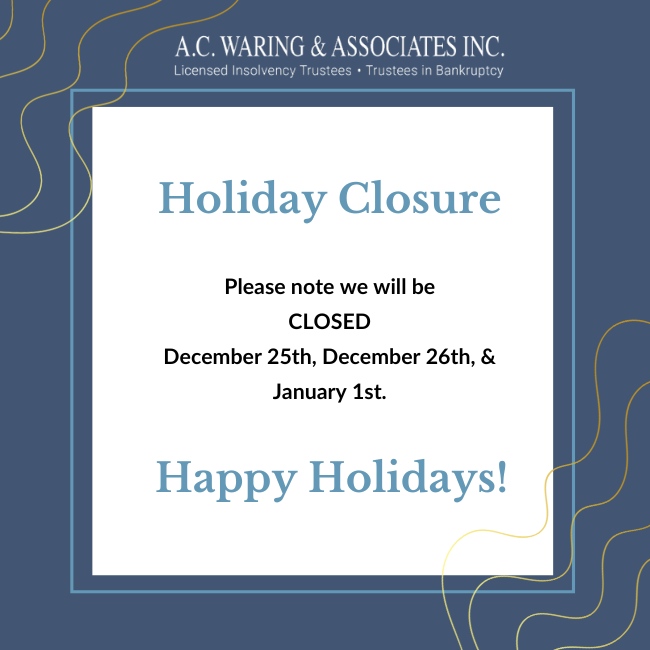Many recovered addicts have extensive personal debt beyond the treatment they received from Alberta Health. Dealing with an addiction is one of the hardest things possible, and the economic fallout afterward can be devastating. You may have stacks of unopened bills and collection notices that piled up and seemed to multiply while you were ill. You are apt to feel remorse now and may feel tremendous stress and shame. If you lost your job in the process, it can be especially hard to recover financially and seem ever so difficult. Regardless of what happened, you need to focus on moving forward and developing a financial recovery plan.
Addiction Support
One of the first steps for recovering financially is to obtain the necessary therapeutic support and guidance available to ensure you have regained your mental and emotional well-being and can maintain your strength. Paying the financial costs related to an addiction is critical but secondary to renewed mental health.
Many recovered addicts realize that they were too immersed in the addiction to recognize the financial strain being caused at the time. Some saw the economic hardships arising as they were incurred but couldn’t seem to gather the strength to do anything about it. Whether it was a problem with shopping, gambling, food, alcohol, drugs or sex, an addiction can have significant personal costs and tremendous financial costs too.
Review Your Finances and Get Professional Help Where Needed
As soon as you are able, it is best to review your assets, debts, and financial obligations. You may need professional help in getting your finances on track, depending on what income sources or assets you have. If you are not working or have little or no money left to pay down your debts, or your debts are too high in comparison to your ability to pay, you may prefer to call a bankruptcy trustee. This doesn’t mean you need to declare bankruptcy; it does mean you have access to a professionally designated person with whom you can determine and assess all options available to you. Bankruptcy isn’t the only solution if your problem is dire. It all depends on your situation, and everyone’s situation is different. You do need a fresh start by getting the best information available to you.
Whatever your best option is, we can help stop the creditors from calling and harassing you on the phone and sending you more registered mail to deal with. We can help you to find a solution that is applicable to your unique situation and best suits your needs.
Forgiveness
No matter how you fare financially, you must try to forgive yourself for the addiction and the financial turmoil that resulted. Forgiveness will enable you to focus your energy on rebuilding your financial health. Remember, you are not the first person to have an addiction and to have negative spill-over effects. You are not the first to lose your job (if you lost your job) because you showed up for work high or drunk or otherwise unable to perform satisfactorily, if you showed up at all. You are not the last one for this occurrence to happen to, either. Nor are you the last to spend your entire pay cheque wastefully (if you did so), whether at the liquor store, pharmacy or casino instead of paying the bills.
When a person has an addiction, he or she has a mental illness which shows itself in poor decision making and a need to put the addiction first ahead of other priorities. If you had another serious illness, like cancer, you probably wouldn’t beat yourself up about the costs the same way. Meanwhile, despite the judgment other people often ascribe, all mental illnesses are exactly that – an illness.
At A.C. Waring & Associates Inc. we have helped many people with debt problems. Your solution will be unique to you; from debt counselling, debt-repayment planning, proposals to creditors, debt consolidation, bankruptcy or other alternatives, we will find your best solution.
We are caring, sensitive and knowledgeable about what you are going through. We are available to help you. If you would like a free consultation, call us in Edmonton, Alberta at 780-424-9944 or 1-800-463-3328.




